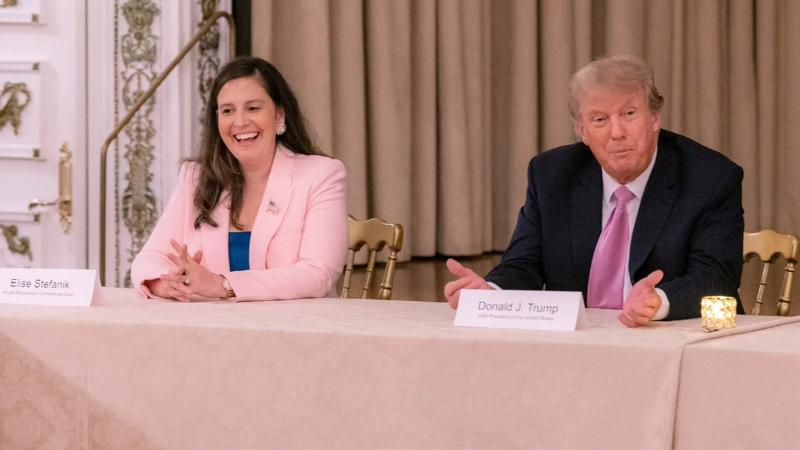Edit
Trump's U.N. Ambassador Nominee Elise Stefanik Vows Reform and Focus on 'America First' Foreign Policy

- greensea
- 23 Jan 2025 12:12 AM
- Careers
Stefanik’s Senate Testimony and Nomination
Elise Stefanik, nominated by President Donald Trump to serve as the U.S. Ambassador to the U.N., testified before the U.S. Senate Foreign Relations Committee on January 21, 2025. In her testimony, Stefanik outlined her approach to the U.N. and her foreign policy agenda. She stated that, if confirmed, she would prioritize reforming the U.N. to ensure it focuses on its foundational mission of promoting international peace and security. Her views were aligned with President Trump’s "America First" policy, which stresses military strength and national security.
Focus on Reform and International Relations
Stefanik promised to tackle issues related to anti-Israel bias within the U.N., as well as to confront China’s increasing influence within the global body. She framed China’s actions at the U.N. as part of a broader, long-term strategy to expand its global reach. She emphasized the need for strong American leadership in collaboration with allies to counter this trend. Stefanik also acknowledged the importance of the U.S. maintaining a firm stance on international diplomacy.
Foreign Aid Review and Concerns Over U.S. Payments
A significant issue discussed during the testimony was President Trump’s recent executive order, which paused foreign development assistance for 90 days. The purpose of this pause is to allow an assessment of the efficiency and alignment of U.S. foreign aid with national interests. Senator Chris Coons expressed concerns, questioning whether this pause would affect U.S. contributions to vital U.N. programs like the World Food Program, UNICEF, and support for countries such as Ukraine and Jordan.
Stefanik responded by emphasizing the need for a thorough review of U.S. foreign assistance. She stated that the review would assess whether each program contributes to making America “stronger, safer, and more prosperous,” aligning with the broader "America First" framework. This decision follows a precedent set during Trump’s first term, which also saw proposed cuts to foreign aid and U.N. peacekeeping funding, though these proposals were met with opposition from Congress.
Financial Implications for the U.N.
The U.S. is the largest contributor to the U.N. budget, accounting for 22% of the core budget. However, as of January 2025, the U.S. owes the U.N. approximately $2.8 billion in outstanding payments. Of this amount, $1.5 billion is related to the regular budget. Despite this debt, the U.S. is not currently at risk of losing its vote in the U.N. General Assembly, as a country must be two years in arrears before facing such consequences.
Political Context and Trump’s Foreign Policy
President Trump’s foreign policy stance, especially during his first term, centered on reducing U.S. involvement in international organizations and agreements that he believed did not serve U.S. interests. This included withdrawing the U.S. from the Paris climate agreement and the World Health Organization. His approach to the U.N. has been similarly critical, with a focus on reducing U.S. contributions and promoting an "America First" agenda.
Stefanik’s confirmation as U.N. Ambassador will mark a continuation of these policies, particularly regarding U.S. financial contributions to the U.N. and other international organizations. She will succeed Linda Thomas-Greenfield, who was appointed by President Joe Biden and served as the U.N. Ambassador throughout Biden’s first term.
Final Observations
Stefanik's confirmation is expected to proceed, despite concerns raised over the 90-day pause in foreign aid. Her appointment will signal a reinforcement of Trump's foreign policy vision in his second term, which includes significant skepticism of international organizations like the U.N. and a focus on making sure U.S. contributions are aligned with national interests.





































